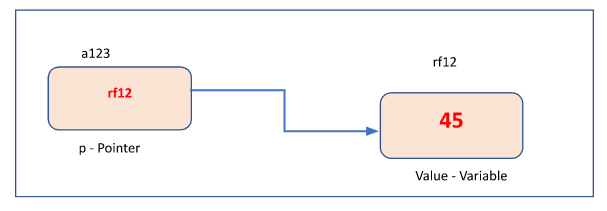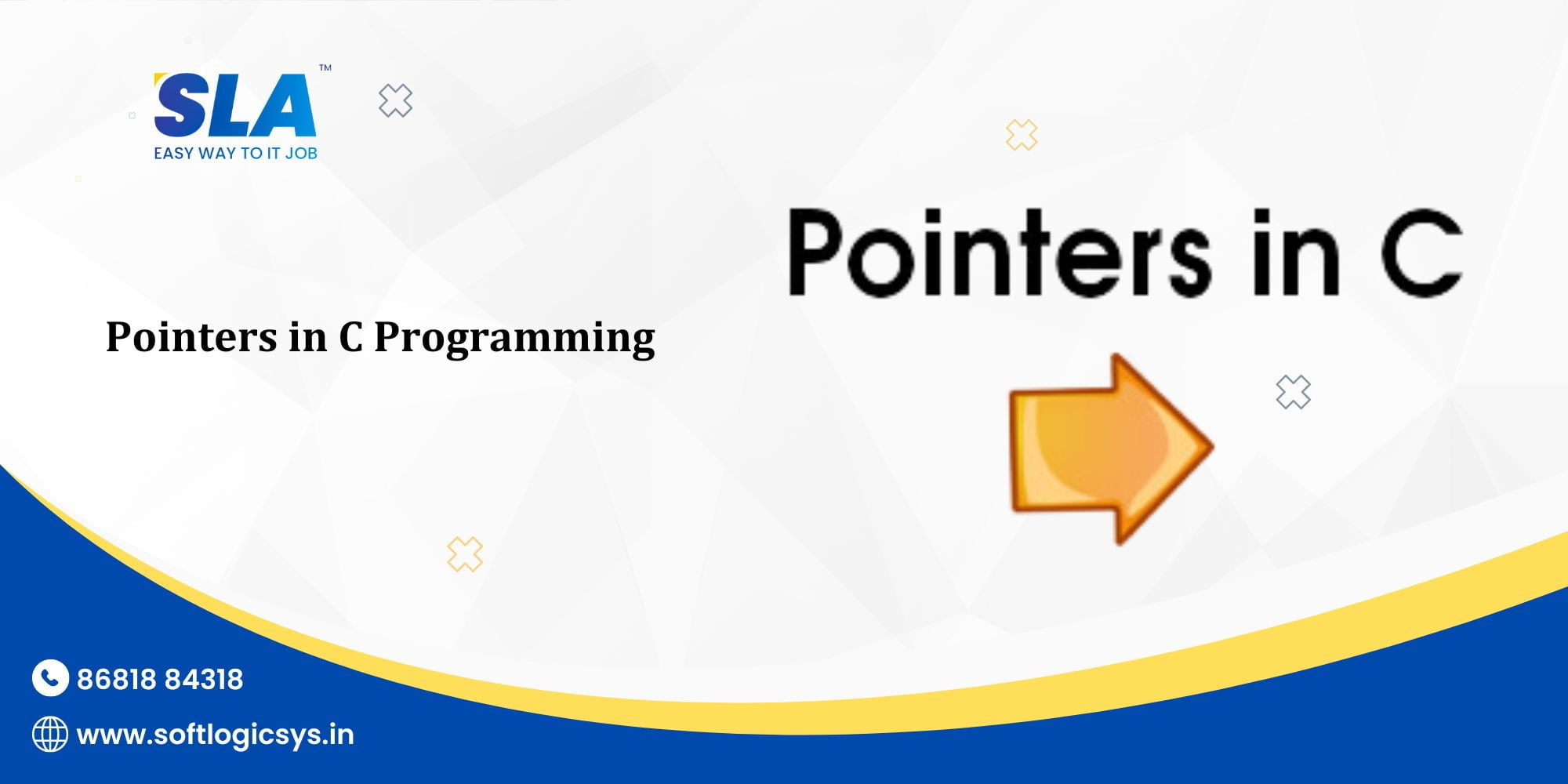Pointers in C Programming
Pointers are variables used to store the addresses of the variable instead of respective values. The C programming language allows users to utilize pointers for dynamic memory allocation as it points to the memory location of the variable. In this article, we are going to explain pointers in C programming language along with their types.
Declaring a Pointer
Pointers can be any type of variable such as int, float, array, char, or function and the size of a pointer is based on the architecture. The pointer in C will be declared using the * asterisk symbol and it is also known as an indirection pointer that is used to dereference a pointer.
The syntax for declaring a pointer
data_type *pointer_name;
Ex: int *pt;

Example
#include<stdio.h>
int main(){
int number=50;
int *p;
p=&number;
printf(“Address of p variable is %x n”,p);
printf(“Value of p variable is %d n”,*p);
return 0;
}
Output
Address of number variable is rf12
Address of p variable is rf12
Value of p variable is 45
Advantages of using pointer in C
Using pointers in C programming has the following advantages
- Reduces the code for improving code performance
- Used to retrieve trees, strings, and so on.
- It returns multiple values from a function
- It makes the user able to access any memory location
Reference and Dereference Operators
We have to use & or * operators while using pointers in C. Here is the difference between the two operators. Reference operator is also referred to as ‘Address of’ operator use & (ampersand) operator with a variable that returns us a memory location or the address of the variable. It will be used as follows
int *pt;
int a;
pt = &a
Here, ‘a’ is the address that is stored in the variable ‘pt’.
Dereference or ‘value at’ operator is defined with an * (asterisk) operator that helps the user to retrieve the value from the memory location stored in the pointer variable. Consider the following example
int *pt;
int a;
*pt = &a;
printf(The value of a = %dn”, *pt);
It displays the value that is stored in the memory location which is the value of variable a.
Types of Pointers
Numerous types of pointers will be used in C programming and the following are the popular types
Null Pointer
A pointer that doesn’t assign any value is known as Null Pointer. Users will assign a null value when they don’t have any address to specify in the pointer at the time of declaration.
Example: int *p=Null;
Wind Pointer
It will be created by not assigning any value to a pointer variable. It can be used meticulously as it provides unexpected results.
Dangling Pointer
If a pointer refers to a deleted variable or de-allocated memory, it is known as a dangling pointer as it points out a non-existing memory location.
Reading Complex Pointers in C
Reading the pointers in C can be considered as follows
| Operator | Precedence | Associativity |
| (), [] | 1 | Left to Right |
| *, identifier | 2 | Right to left |
| Data type | 3 | – |
When we use (), it defines the function
When we use [], it defines the array subscript
When we use *, it defines a pointer operator
When we use the identifier, it is the name of the pointer
The data type will be used to denote the pointer that is intended to point.
C Program with Pointers
include <stdio.h>
int main()
{
int* pc, c;
c = 22;
printf(“Address of c: %pn”, &c);
printf(“Value of c: %dnn”, c); // 22
pc = &c;
printf(“Address of pointer pc: %pn”, pc);
printf(“Content of pointer pc: %dnn”, *pc); // 22
c = 11;
printf(“Address of pointer pc: %pn”, pc);
printf(“Content of pointer pc: %dnn”, *pc); // 11
*pc = 2;
printf(“Address of c: %pn”, &c);
printf(“Value of c: %dnn”, c); // 2
return 0;
}
Output
Address of c: 2686784
Value of c: 22
Address of pointer pc: 2686784
Content of pointer pc: 22
Address of pointer pc: 2686784
Content of pointer pc: 11
Address of pointer c: 2686784
Value of c: 2
Conclusion
We hope this article helps you with the basic understanding of pointers in C. Enjoy the experimental-based learning in our C C++ Training in Chennai for understanding C much better.

